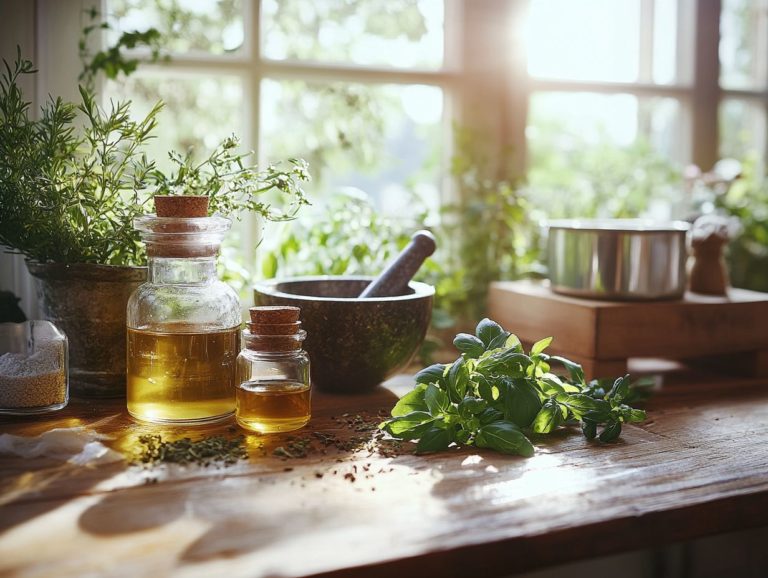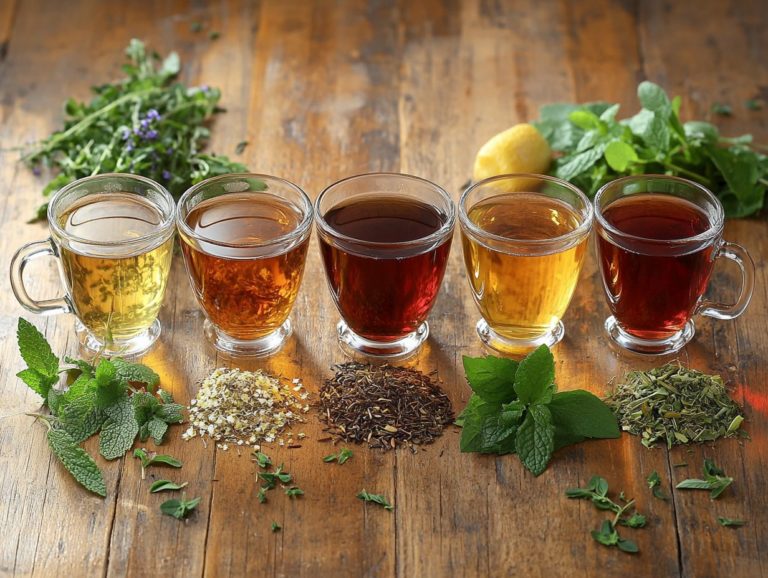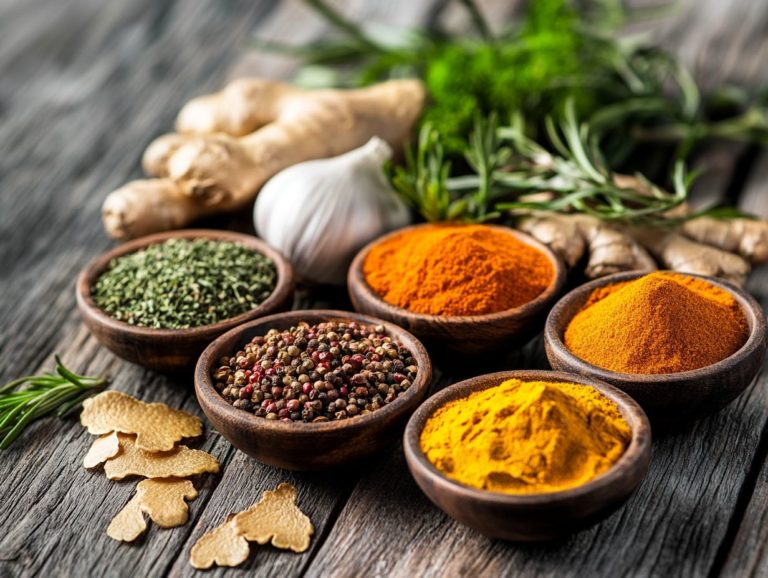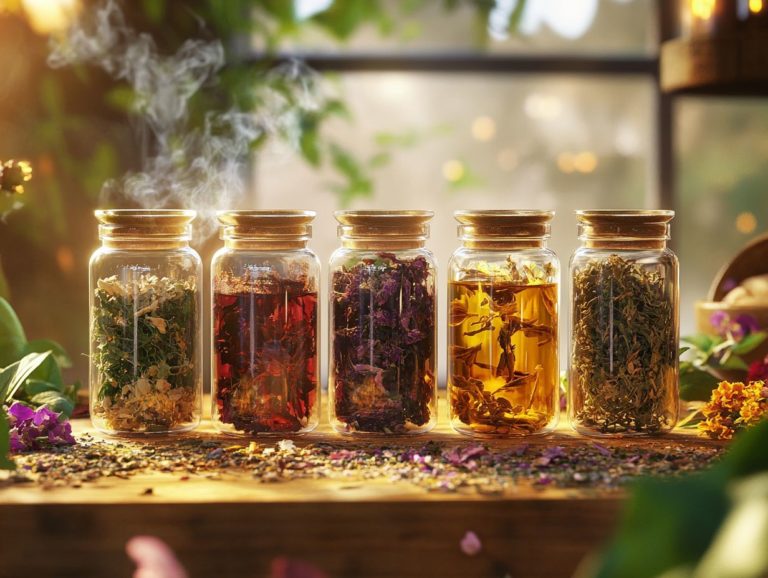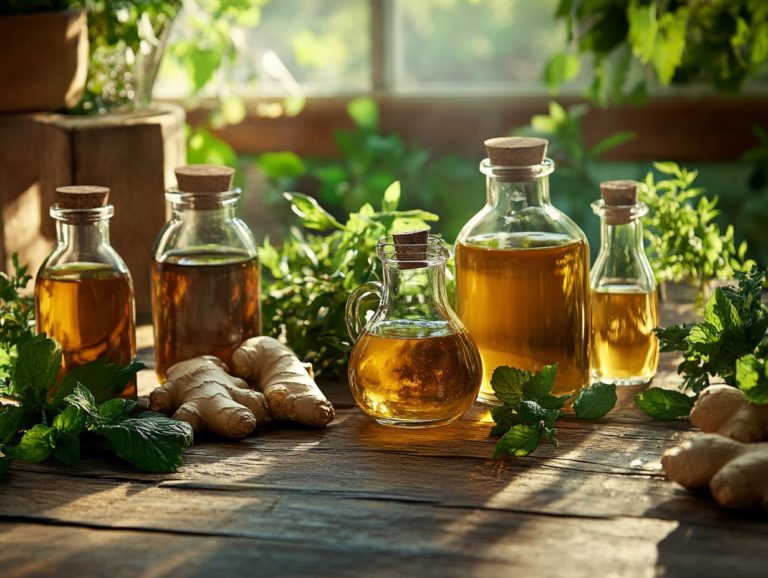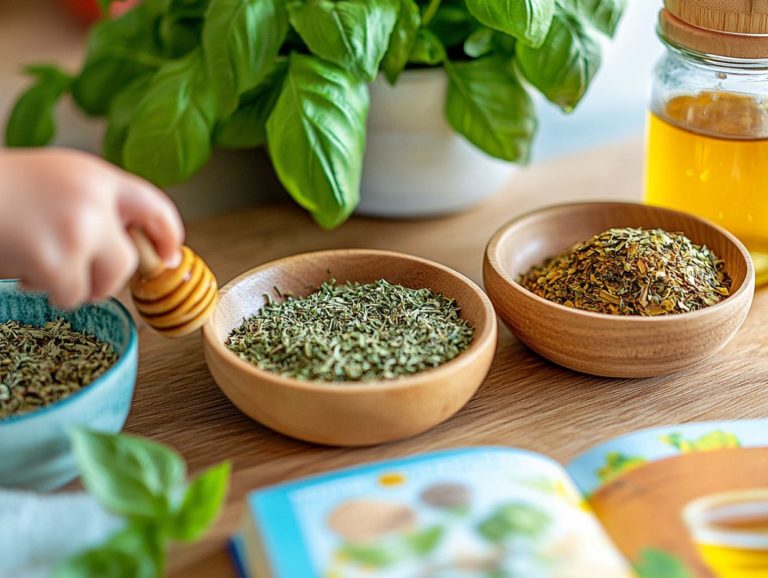Herbal Remedies for Menstrual Cramps
Menstrual cramps can be a significant challenge. Understanding the causes and symptoms is the first step to relief.
This article explores herbal remedies that can help ease painful cramps. Discover effective supplements, soothing teas, alternative therapies, and simple lifestyle changes.
Whether you want natural relief or proactive strategies, you ll find practical tips to ease discomfort and enhance your well-being.
Contents
- Key Takeaways:
- Understanding Menstrual Cramps
- Common Herbal Remedies
- Herbal Supplements for Menstrual Cramps
- Herbal Teas for Menstrual Cramps
- Other Natural Remedies
- Preventing Menstrual Cramps
- Frequently Asked Questions
- What are herbal remedies for menstrual cramps?
- What are the benefits of using herbal remedies for menstrual cramps?
- What are some effective herbs for menstrual cramps?
- Can herbal remedies for menstrual cramps be taken with other medications?
- Are herbal remedies for menstrual cramps safe for everyone to use?
- How should herbal remedies for menstrual cramps be used?
Key Takeaways:
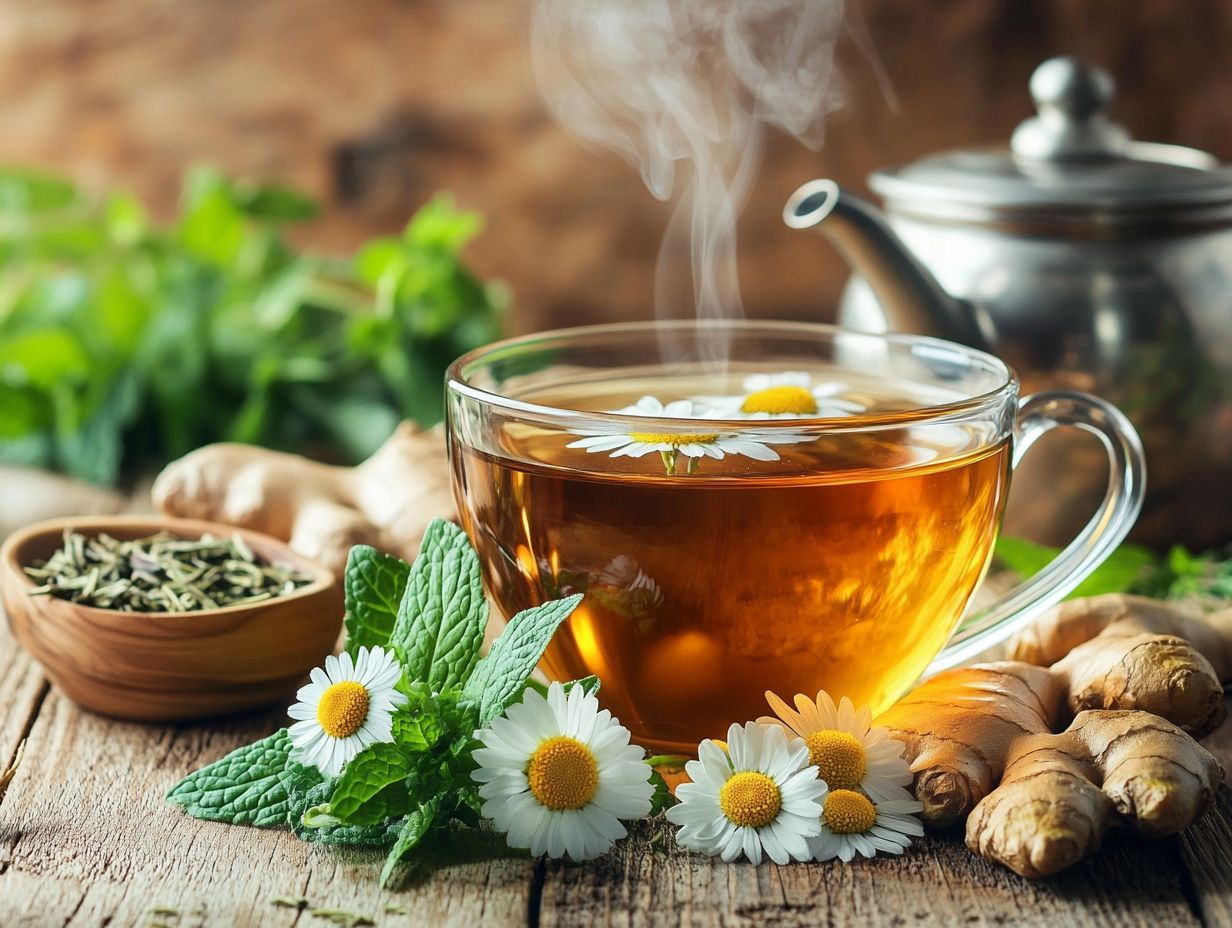
Herbal remedies can effectively alleviate menstrual cramps. They reduce pain and discomfort with minimal side effects. Adopting healthy habits can also help reduce the severity of cramps. Always consult with a healthcare provider before trying herbal remedies.
Understanding Menstrual Cramps
Menstrual cramps, or painful menstrual cramps, create discomfort in the lower abdomen during your period. These cramps can range from mild to severe, impacting your daily life.
Hormonal changes, underlying medical conditions, and lifestyle choices contribute to menstrual cramps. By recognizing these factors, you can identify effective treatments, from over-the-counter medicines to natural remedies.
Causes and Symptoms
The causes of menstrual cramps can be complex and often stem from hormonal changes that cause the uterus to contract. Factors like stress, diet, and a lack of exercise can make cramps worse.
High levels of prostaglandins, chemicals that promote inflammation, can lead to increased pain during your period. Symptoms range from sharp pains to dull aches that may radiate to your back or thighs.
Some may also experience nausea, fatigue, and headaches. These symptoms highlight the link between hormonal health and lifestyle choices.
Common Herbal Remedies
Herbal remedies are popular for relieving menstrual cramps. Options like ginger, fennel, chamomile, and peppermint oil show promise in easing discomfort.
These natural alternatives not only relieve symptoms but also address the hormonal changes causing menstrual pain. Research indicates that integrating these remedies into your routine can significantly improve your menstrual health.
Effectiveness and Safety
Research on herbal remedies for menstrual cramps emphasizes the need for clinical studies to confirm their benefits. Recent findings highlight ginger and chamomile as effective options for pain relief.
Ginger is known for its anti-inflammatory effects and can reduce pain when taken at the beginning of cramps. Chamomile helps relax muscles and ease spasms.
However, be aware of potential side effects. Chamomile may cause allergic reactions in some, especially those sensitive to related plants. It’s also important to note that these remedies may interact with blood-thinning medications.
Before trying these remedies, discuss them with your healthcare provider.
Herbal Supplements for Menstrual Cramps
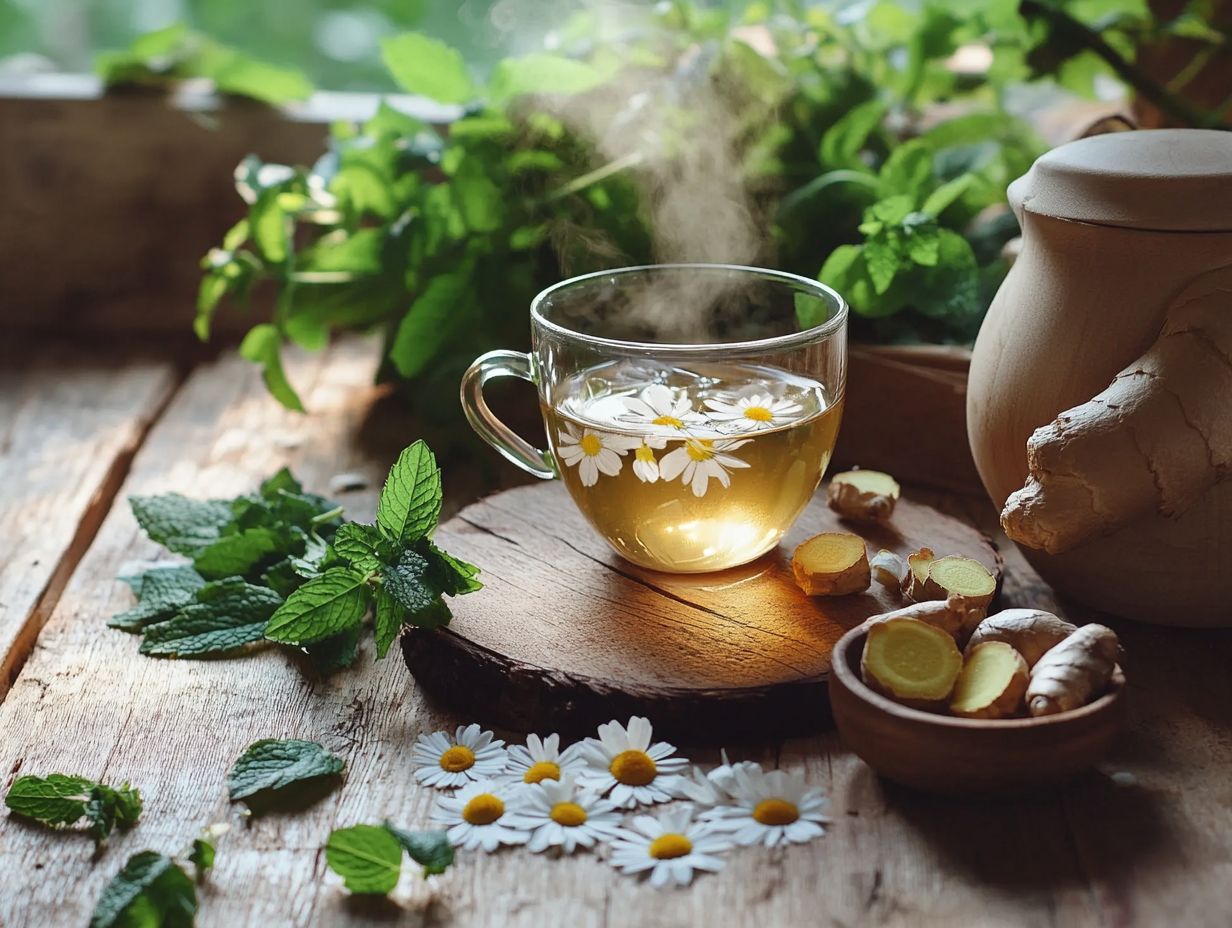
Herbal supplements like ginger and fennel are popular for easing menstrual cramps. Recently, Pycnogenol has gained attention as a noteworthy option.
Many people prefer these natural alternatives over common pain relievers. It is essential to understand the correct dosages and formulations to enjoy their benefits while avoiding risks.
This knowledge gives you the power to make informed choices about managing discomfort during your menstrual cycle.
Types of Supplements and Dosage Recommendations
Various herbal supplements can help with menstrual cramps, and their dosage can vary based on the ingredient and your individual needs.
Take ginger, for example. It’s known for its anti-inflammatory properties, and studies suggest 1,000 to 2,000 mg per day might ease your pain.
Fennel is another popular choice, famous for its ability to relax muscles. You can take it in doses of 30 to 300 mg, often found in capsules or brewed as a tea.
Pycnogenol, a natural extract from pine bark, also shows promise for relieving menstrual discomfort. A suggested daily intake is around 30 mg.
Consult with a healthcare provider before starting any new supplement regimen. Your unique health circumstances are essential for your safety.
Herbal Teas for Menstrual Cramps
Herbal teas like chamomile and peppermint are excellent for easing menstrual cramps. They offer soothing relief from discomfort associated with painful menstruation.
These delightful brews keep you hydrated and may have anti-inflammatory properties that help reduce pain.
Explore different brewing methods to enhance their effectiveness. Make these comforting beverages a cherished part of your daily routine to support menstrual health.
Types of Teas and Brewing Methods
Several types of herbal teas can be effective for menstrual cramps, with chamomile and peppermint standing out for their calming qualities.
To prepare chamomile tea, steep dried flowers in boiling water for five to ten minutes. Enjoy the gentle aroma as this tea alleviates cramps and promotes relaxation.
Peppermint tea offers a refreshing experience. Brew it by infusing fresh or dried peppermint leaves in hot water for the same length of time. The natural menthol helps relieve tension and reduce bloating.
Other Natural Remedies
In addition to herbal remedies, explore solutions like self-massage, acupuncture, and essential oils. These can provide significant relief from menstrual cramps.
Techniques like using a hot water bottle can soothe your lower abdomen. Acupuncture has also proven effective for relieving pain associated with painful menstruation.
By exploring these alternatives, you can create a well-rounded strategy for managing discomfort during your menstrual cycle.
Alternative Therapies and Home Remedies
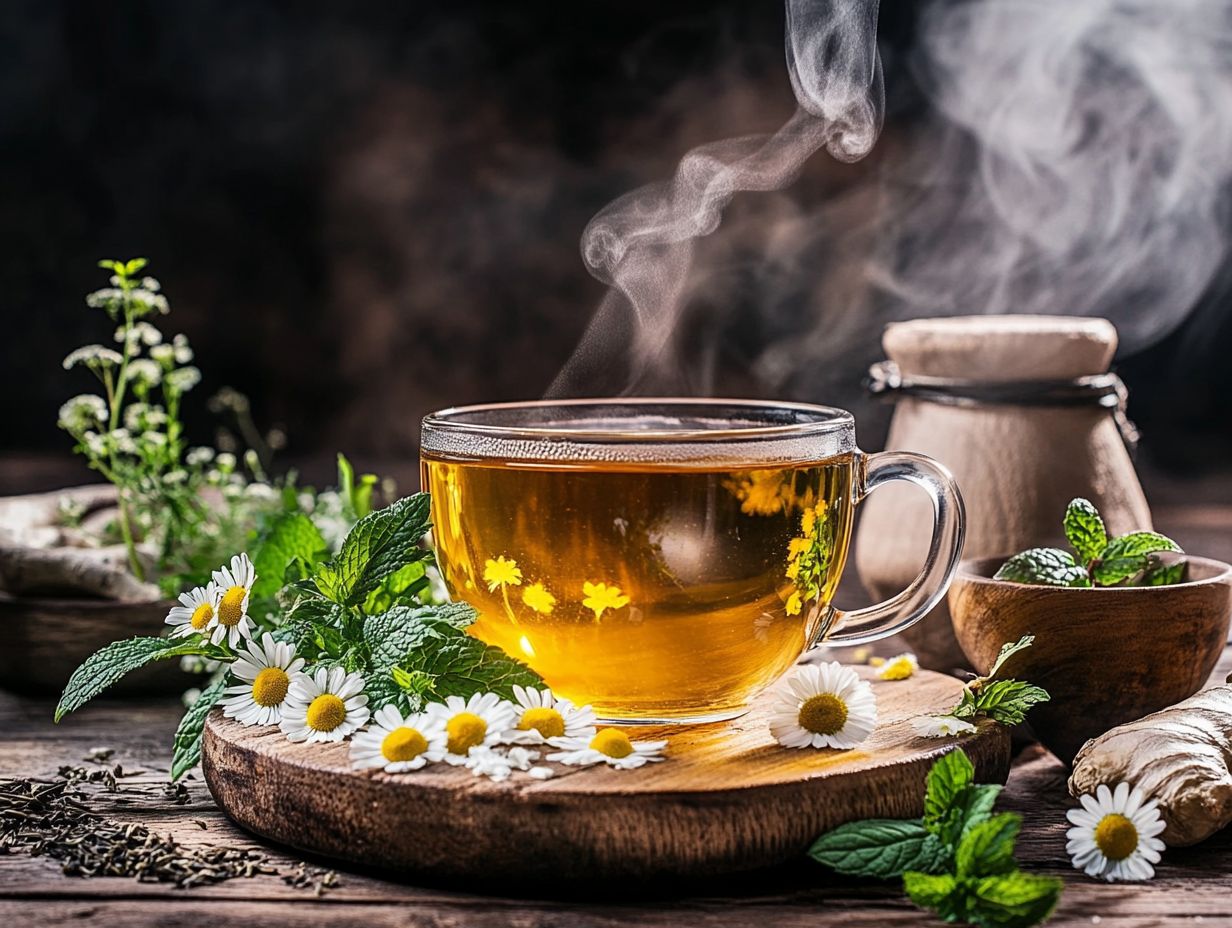
Alternative therapies and home remedies can effectively manage menstrual cramps. Techniques like acupuncture and self-massage enhance your comfort during this time of the month.
These approaches not only alleviate discomfort but also promote your overall well-being. Acupuncture targets specific pressure points to balance your body’s energy and reduce pain.
Home remedies like herbal teas and essential oil applications can support your natural healing. Warm compresses can also provide significant relief.
By embracing these alternative options, you can discover a holistic set of strategies to improve your menstrual experience.
Preventing Menstrual Cramps
Preventing menstrual cramps requires you to adopt proactive strategies that focus on dietary changes and healthy habits aimed at supporting your overall menstrual health.
Incorporating anti-inflammatory foods into your diet and maintaining regular physical activity can significantly lessen the severity of cramps associated with painful periods.
Integrating lifestyle changes fosters a supportive environment for a balanced menstrual cycle, ultimately enhancing your comfort and overall wellness.
Healthy Habits and Lifestyle Changes
Adopting healthy habits and lifestyle changes is crucial for preventing menstrual cramps. These elements can greatly influence your menstrual cycle and overall well-being.
A balanced diet brimming with anti-inflammatory foods think leafy greens, nuts, and fatty fish can work wonders. Stay hydrated while minimizing caffeine and sugar intake to alleviate discomfort.
Engaging in regular physical activity, whether it s yoga or light cardio, enhances circulation and reduces tension. This makes it easier for you to manage symptoms during your period.
Mindfulness practices, such as meditation, boost emotional well-being and foster a more harmonious connection between your mind and body.
Check out this helpful video for more tips on managing menstrual cramps!
Frequently Asked Questions
What are herbal remedies for menstrual cramps?
Herbal remedies for menstrual cramps are natural plant-based treatments that help alleviate discomfort and pain during menstruation. These can include herbs, teas, supplements, and essential oils.
What are the benefits of using herbal remedies for menstrual cramps?
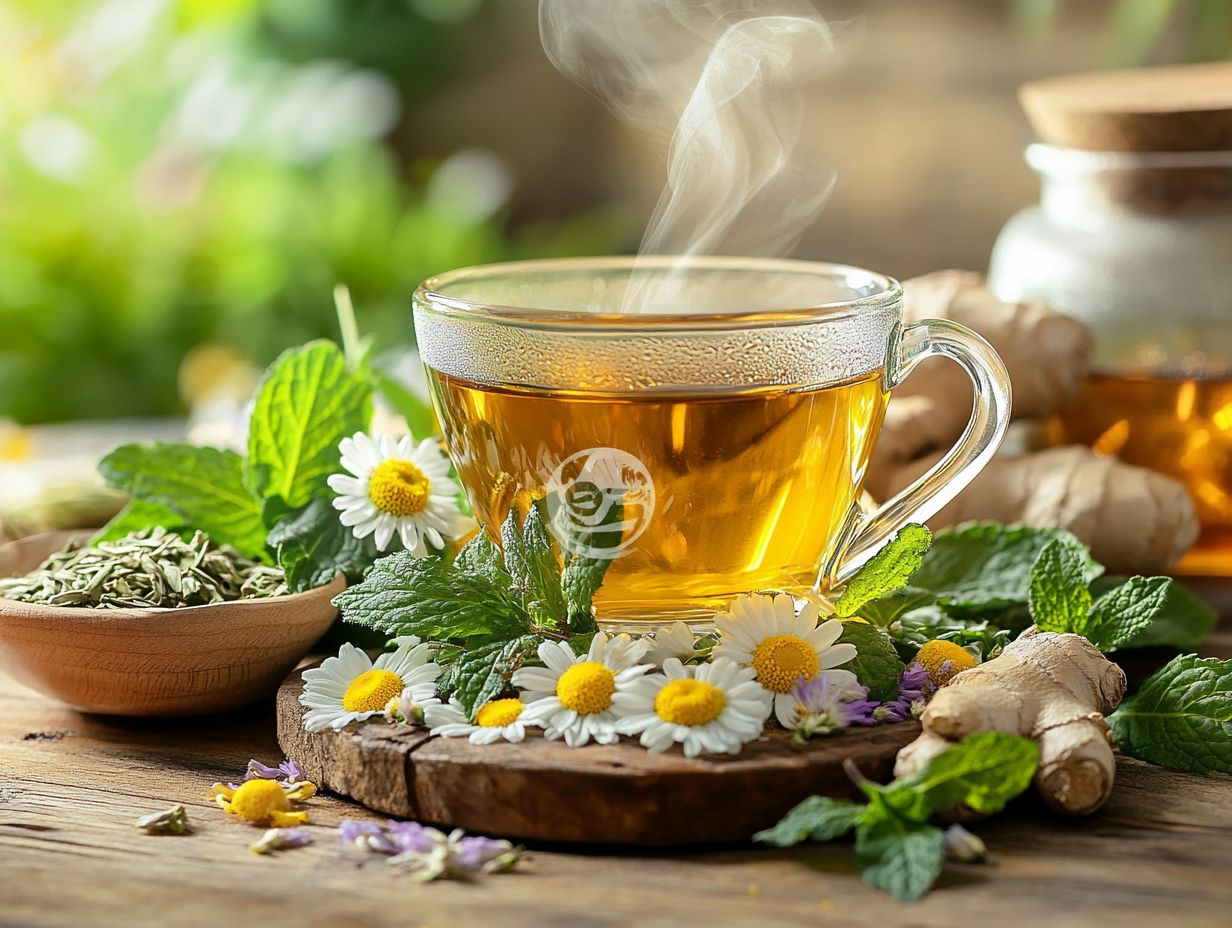
Herbal remedies can reduce inflammation, relax muscle tension, improve blood flow, and balance hormonal levels. They also serve as a natural and safe alternative to over-the-counter pain relievers.
What are some effective herbs for menstrual cramps?
Some commonly used herbs include ginger, chamomile, cramp bark, turmeric, and peppermint. These amazing herbs can work wonders in easing your cramps!
Can herbal remedies for menstrual cramps be taken with other medications?
It is always best to consult a healthcare professional before taking any herbal remedies, especially if you are on other medications. Some herbs may interact with certain medications, so ensure their safety and effectiveness when used together.
Are herbal remedies for menstrual cramps safe for everyone to use?
While herbal remedies are generally safe, reactions can vary. Some individuals may have allergies or sensitivities to specific herbs, so consulting a healthcare professional before trying new remedies is advisable.
How should herbal remedies for menstrual cramps be used?
Herbal remedies can be taken in various forms, such as teas, capsules, or essential oils. Follow the recommended dosage and instructions for each specific remedy. It may take a few cycles of consistent use to see the full benefits.
Try these tips today and experience relief from menstrual cramps!

